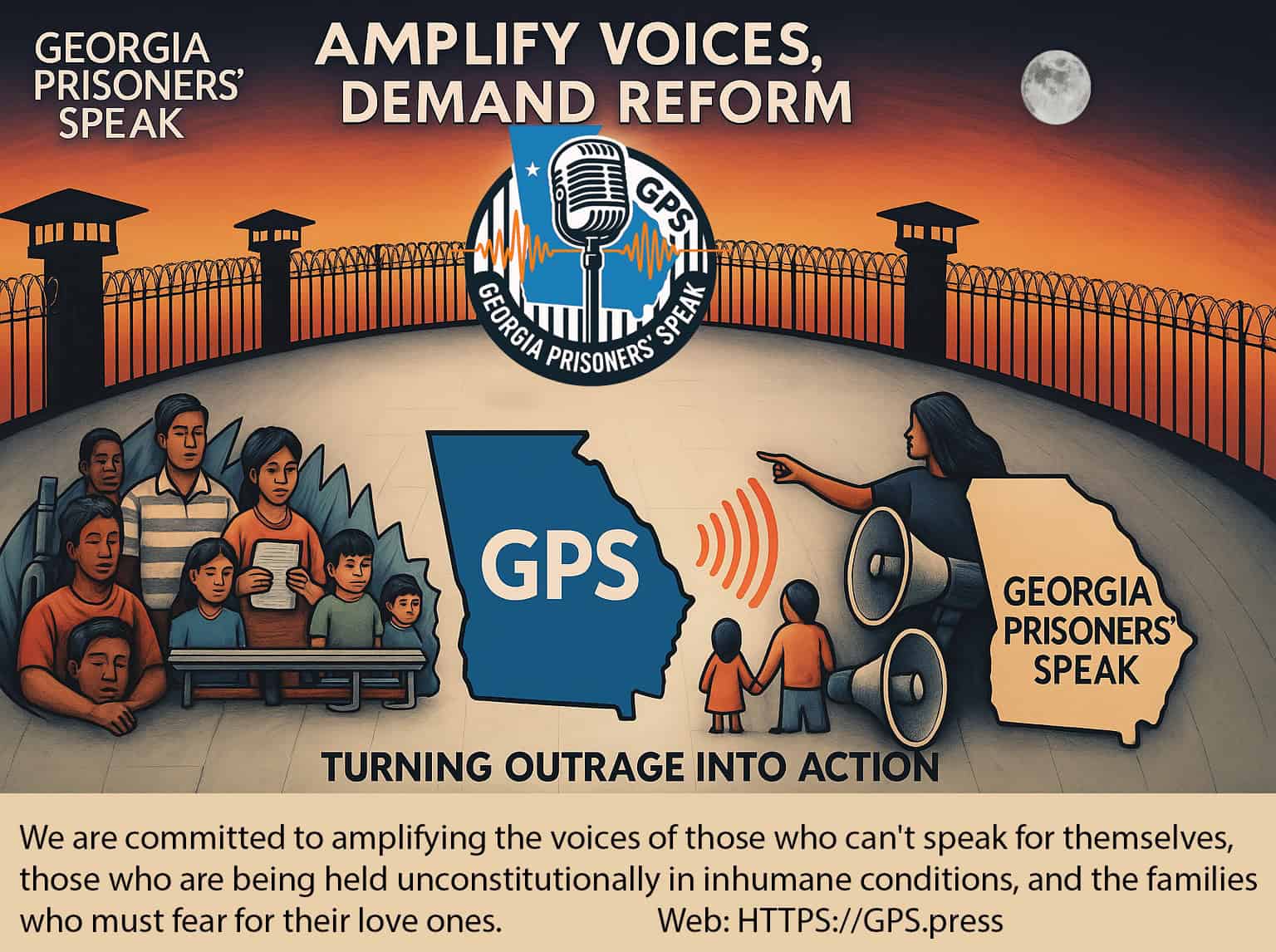The Department of Justice found Georgia prisons violate the Eighth Amendment. The state has known for years. Nothing changes. Constitutional protections against cruel and unusual punishment exist on paper—but inside Georgia’s 34 state prisons, they mean nothing. A homicide rate 32 times higher than the free population. Medical requests ignored until people die. Staff vacancies so severe that gangs control entire housing units. 1
What the Law Requires
The Eighth Amendment prohibits cruel and unusual punishment. Courts have interpreted this to require:
- Protection from violence — Georgia fails. 100+ homicides in 2024 alone
- Adequate medical care — Georgia fails. Average age at death: 52.1 years
- Humane conditions — Georgia fails. DOJ found unconstitutional conditions systemwide
The landmark case Estelle v. Gamble (1976) established that deliberate indifference to serious medical needs violates the Constitution. Hudson v. McMillian (1992) clarified that even minor injuries can prove Eighth Amendment violations if force was applied maliciously. 2
What the DOJ Found
The 2024 Department of Justice investigation documented systemic constitutional violations across Georgia’s prison system:
- Failure to protect — The state fails to protect prisoners from violence, including sexual assault, stabbings, and beatings
- Inadequate staffing — Vacancy rates exceed 49% at multiple facilities, leaving inmates unsupervised
- Medical neglect — Sick call requests go unanswered for days or weeks; people die of treatable conditions
- Excessive force — Staff use force without justification and falsify reports to cover incidents
These aren’t isolated incidents. The DOJ found patterns of constitutional violations across multiple facilities over extended periods. Georgia knew about these problems and failed to act. 1
GPS Has Documented the Toll
Georgia Prisoners’ Speak tracks what the state refuses to acknowledge:
- 1,682 deaths since 2020 — documented in our Mortality Database
- 333 deaths in 2024 alone
- 100+ homicides in 2024 — 32 times the free population rate
- 52.1 years — average age at death, decades below Georgia’s life expectancy
Each statistic represents a person whose constitutional rights were violated. Families who lost loved ones to state neglect. A system that fails its basic legal obligations. 3
Who Faces the Greatest Risk
Certain populations face heightened constitutional violations:
- People with mental health conditions — Receive inadequate treatment, face disproportionate force
- LGBTQ+ individuals — Unsafe housing assignments, targeted violence
- Elderly prisoners — Medical needs ignored, die of treatable conditions
- People with disabilities — Unable to navigate systems designed to fail them
The state knows these vulnerabilities exist. It fails to provide constitutionally required protections.
The Legal Path Forward
Proving Eighth Amendment violations requires demonstrating:
- Serious harm — Significant injury, illness, or risk of harm
- Deliberate indifference — Officials knew of the risk and failed to act
In Georgia, documenting these elements isn’t difficult. The evidence is overwhelming. The DOJ has already found constitutional violations. What’s missing is political will to change.
Take Action
Use Impact Justice AI to send advocacy emails demanding constitutional compliance. The free tool crafts personalized messages to Georgia lawmakers, parole board members, and oversight agencies—no experience required.
Demand:
- Immediate action on DOJ findings
- Independent oversight of Georgia prisons
- Accountability for officials who enabled constitutional violations
- Adequate staffing to ensure basic safety
Further Reading
- $700 Million More—And Nothing to Show for It
- Cruel and Unusual Dentistry: Inside Georgia’s Prison Dental Crisis
- GPS Informational Resources
- Pathways to Success
About Georgia Prisoners’ Speak (GPS)
Georgia Prisoners’ Speak (GPS) is a nonprofit investigative newsroom built in partnership with incarcerated reporters, families, advocates, and data analysts. Operating independently from the Georgia Department of Corrections, GPS documents the truth the state refuses to acknowledge: extreme violence, fatal medical neglect, gang-controlled dorms, collapsed staffing, fraudulent reporting practices, and unconstitutional conditions across Georgia’s prisons.
Through confidential reporting channels, secure communication, evidence verification, public-records requests, legislative research, and professional investigative standards, GPS provides the transparency the system lacks. Our mission is to expose abuses, protect incarcerated people, support families, and push Georgia toward meaningful reform based on human rights, evidence, and public accountability.
Every article is part of a larger fight — to end the silence, reveal the truth, and demand justice.

